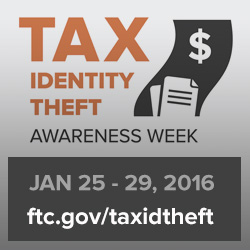Calls Claiming to be the SSA
This morning I got a call from New York on my cell phone. Since I was not expecting any call from New York, I let it go to my voicemail. The message that was left was;
“This call is from the Department of Social Security Administration. The reason that you received this phone call from our department is to inform you that we just suspended your social security number because we found some suspicious activity. So, if you want to know about this case just press one. Thank you.”
Needless to say, I did not return the call. Instead, I went to the Federal Trade Commission website at FTC.gov. On the front page of the website was a link to a warning about this scam:
Scammers are calling, pretending to be from the Social Security Administration (SSA) and saying that your Social Security number (SSN) has been suspended because of suspicious activity or being involved in a crime. Sometimes, the scammer wants you to confirm your SSN to reactivate it or will ask for money or gift cards to keep your SSN or bank account safe.
Here’s what to know:
- Your Social Security number is not about to be suspended. You don’t have to verify your number to anyone who calls out of the blue. And your bank accounts are not about to be seized.
- SSA will never call to threaten you or your benefits. And SSA will not tell you to wire money, send cash, or put money on gift cards. Anyone who tells you to do those things is a scammer. Every time.
- Don’t trust what you see on caller ID. Scammers can make it look like they’re calling from anywhere – even a real SSA phone number. Read what the real SSA has to say about this scam at their Social Security Matters blog.
- Never give any part of your Social Security number to anyone who contacts you out of the blue. Or your bank account or credit card number.
- Real SSA staff do call people who have ongoing business with the agency. But they’ll never threaten you, ask you to confirm your SSN, or ask you to send money.



 As Tax season approaches make sure that you do not fall victim to the fraud and scams that abound. Listed below are some of the events that are being hosted by the Federal Trade Commission and its partners on how to minimize your risk what to do if your identity is compromised.
As Tax season approaches make sure that you do not fall victim to the fraud and scams that abound. Listed below are some of the events that are being hosted by the Federal Trade Commission and its partners on how to minimize your risk what to do if your identity is compromised.


